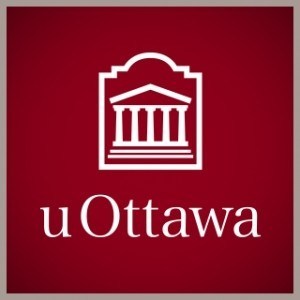Photos of university / #myucalgary
The Bachelor of Arts in Religious Studies at the University of Calgary offers students a comprehensive exploration of the diverse religious traditions, beliefs, practices, and texts that have shaped human societies throughout history. This program is designed to foster critical thinking, cultural awareness, and a nuanced understanding of religion's role in contemporary global issues. Students will engage with a wide range of topics, including mythology, ritual, ethics, philosophy of religion, and the intersections of religion with politics, gender, art, and society. The curriculum combines historical perspectives with contemporary analysis, providing an interdisciplinary approach that draws from anthropology, history, philosophy, and literature. Through coursework, research, and discussion, students develop skills in analytical thinking, written communication, and intercultural dialogue, preparing them for careers in education, public service, non-profit organizations, and religious or community leadership. The program also emphasizes experiential learning, encouraging students to participate in community projects, internships, and study abroad opportunities to gain practical insights into religious communities and interfaith initiatives. Faculty members are dedicated scholars and practitioners who bring a wealth of knowledge and global perspectives to the classroom, fostering an inclusive environment for diverse beliefs and ideas. Graduates of the Religious Studies program at the University of Calgary are equipped to critically analyze religious phenomena and contribute thoughtfully to discussions on religion’s impact on individual identity and societal development. Whether pursuing further academic research or entering the workforce, students will leave the program with a deep understanding of the world's religions and the analytical skills necessary to navigate an increasingly interconnected and pluralistic society.
- Studies in Western Religions
- Studies in Eastern Religions
- Studies in the Nature of Religion
- PhD Departmental Colloquium
- Advanced Critical Discourses in the Study of Religion
- Dissertation
Requirements
- In normal circumstances students applying for entrance to the PhD program will have an MA in Religious Studies or a comparable degree with equivalent balance components of Eastern Religions, Western Religions, and the Nature of Religion with a minimum grade point average of 3.50 (of a 4.0 maximum).
- Two Academic References - Referees will receive an email invitation to complete an online reference once the applicant submits an application.
- Applicants must supply a sample of previous written research work. The sample should indicate the original course, instructor and institution
- Proposal for Study - maximum two pages.
- Students with an Honours Bachelor of Arts degree in Religious Studies, a grade point average of 3.7 or higher, and evidence of competence in the required languages may be admitted directly into the doctoral program or may be considered for transfer to the doctoral program after the first year of the Master's program. Such applicants must include in their application a substantial piece of written work and a detailed statement (10 pages) of the purpose, field, and course of study to be pursued in the program.
- Official TOEFL scores for international applicants. TOEFL score of 86 with no section less than 20 (Internet-based) or 560 (paper-based). Our institution code is 0813.
Scholarships
- PhD students normally receive $20,000 or more per year for four years. The funding comes in the form of scholarships, teaching assistantships, and in the latter years of the program, teaching appointments.
- Social Sciences and Humanities Research Council Scholarship
- The University'sGraduate Award Competition
The University of Calgary offers a comprehensive undergraduate program in Religious Studies that aims to provide students with a broad understanding of religious beliefs, practices, and their roles in societies throughout history and around the world. The program emphasizes critical thinking, analytical skills, and an appreciation for cultural diversity through the exploration of various religious traditions including Christianity, Islam, Hinduism, Buddhism, Judaism, and Indigenous spiritualities. Students in this program have opportunities to examine religious texts, rituals, ethics, and community structures, fostering a deeper understanding of how religion influences individual and societal values.
The curriculum is designed to prepare students for diverse career paths such as education, community leadership, social services, government, and non-profit sectors. The program often includes interdisciplinary approaches, integrating insights from history, anthropology, philosophy, and literature to enrich students' understanding of religious phenomena. Students may also have opportunities for fieldwork, internships, or research projects that allow practical engagement with religious communities and organizations.
The Bachelor of Arts degree in Religious Studies at the University of Calgary is typically structured to include core courses in the history of religions, world religions, religious thought and ethics, and specialized courses in areas like religious art, mythology, and contemporary religious issues. The program encourages critical analysis of religious texts and practices and considers contemporary issues such as secularism, religious tolerance, and the role of religion in politics and global conflicts.
Graduates of the program are well-equipped to pursue advanced studies in religious studies, theology, or related fields, or to apply their knowledge in professional contexts that benefit from cultural literacy and intercultural competence. The university provides experienced faculty members renowned for their research and teaching, as well as resources such as libraries and study centers that support religious studies research. Overall, the program aims to foster informed and reflective citizens capable of engaging thoughtfully with religious and cultural diversity in various professional and community settings.




